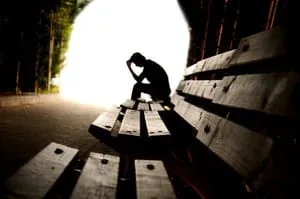
Did you know that in 2015...
- 16.1 million adult Americas were diagnosed with Major Depressive Disorder
- 40 million Americans were diagnosed with some form of Anxiety Disorder
- Depression and Anxiety are often co-occurring disorders meaning that if you suffer from one, you may also have symptoms of the other.
- These disorders are highly treatable, but that only about 1/3 of those diagnosed receive treatment?
We all go through difficult times in life. Sometimes we feel depressed as a result of moving, divorce, a death in the family, stress at work, or the trials of raising a family. Some people are able to navigate those difficult times on their own and they feel better in a couple of months. However, for many people, those difficulties lead to serious symptoms which interfere with daily life.
Are you worried that you might suffer from Major Depressive Disorder? If you struggle with any 5 of the following symptoms, it is a possibility.
- Depressed mood or irritability most of the day, most days
- Decreased pleasure in activities that you used to enjoy
- Weight change (by at least 5%) or appetite changes
- Change in sleep (insomnia or hypersomnia)
- Change in activity (restlessness or sluggishness)
- Fatigue or loss of energy
- Feeling of guilt or worthlessness
- Diminished ability to think or concentrate
- Thoughts of death or suicide

Although not always the case, depression and anxiety often go hand in hand. Many people who struggle with depression, also struggle with anxiety. If you struggle with the following symptoms, you may have a condition called Generalized Anxiety Disorder.
- Excessive anxiety or worry about a variety of topics, events, or activities that lasts for 6 months or more. Excessive worry means that you worry even when there is nothing wrong, or your worry seems disproportionate to the actual risks.
- You find it difficult to control the worry
-
Your anxiety is associated with at least three of the following symptoms:
- Restlessness (feeling on edge)
- Easily fatigued
- Difficulty concentrating
- Irritability
- Muscle tension
- Sleep disturbance
- The anxiety, worry, or physical symptoms impair your ability to function, or cause significant distress, in your everyday life at home, work, or school.
While medication can be useful in addressing the symptoms of depression and anxiety, a combination of medication and therapy has proven to be the most effective treatment. Depression and anxiety are highly treatable illnesses. In my work with clients, I am able to tailor my treatment plan to fit the specific needs of each individual.
If you think you are suffering from symptoms of depression or anxiety, please call for a free 15 minute phone consultation. 281-456-3941